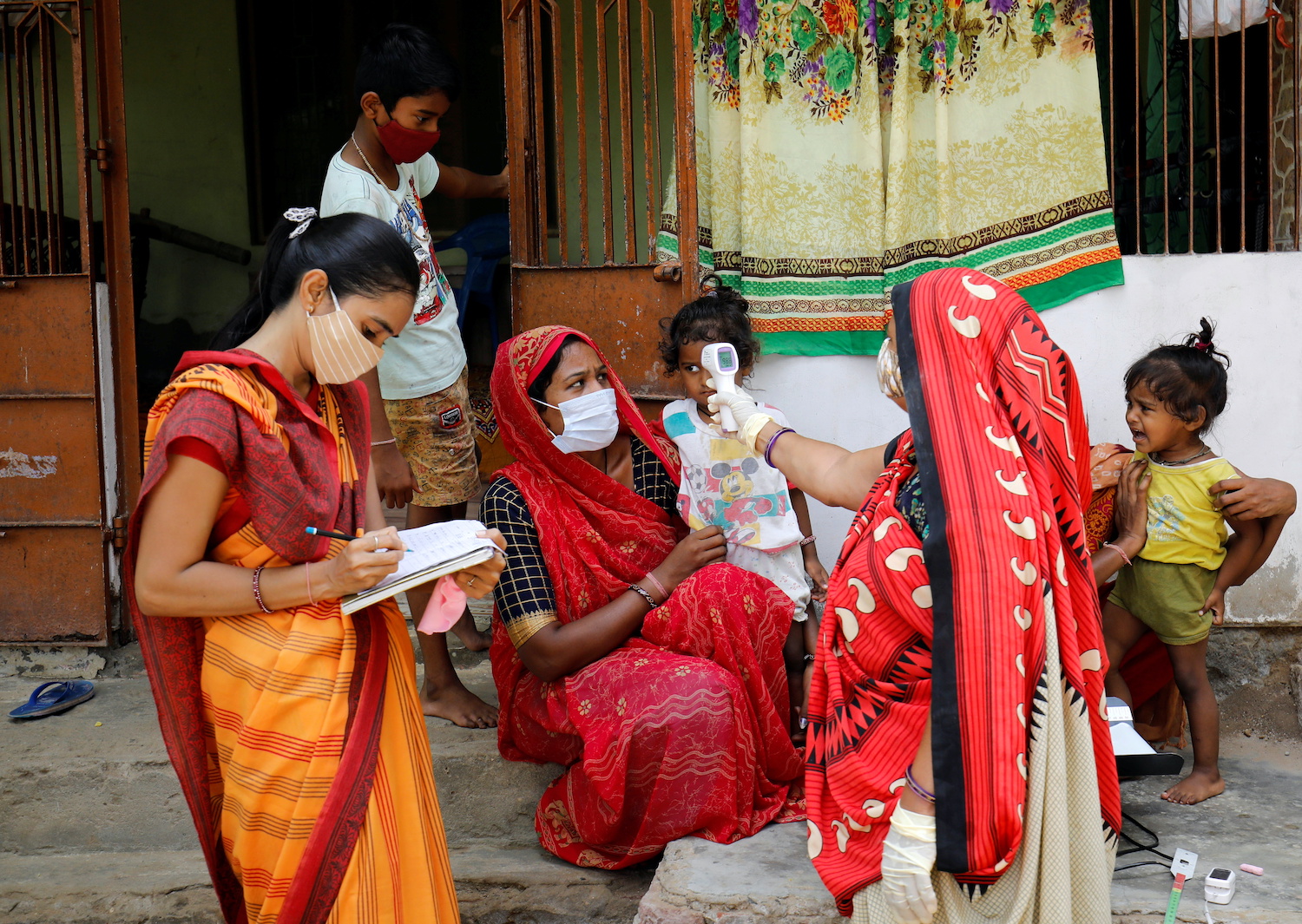As India and other countries contend with a bruised healthcare industry, a workforce exhausted by Covid and other life-threatening diseases, there is still much to be done to rebuild healthcare infrastructure and ensure they can face any potential health crises in the future.
There are few forces as powerful as a global health crisis to expose the underbelly of our world’s social structures. Events over the past 18 months have exposed systemic inequality, overpopulation and consequences of insufficient healthcare funding around the world.
The Covid-19 pandemic has been a moment of reckoning for the global healthcare network, shaking the foundations of many systems around the world. In the case of India, the country of more than a billion people was able to gradually curtail the virus during its first wave which ran from June to November of 2020. However, it was harder hit during its second wave which began in March this year and peaked during the month of May, where at one point, the total number of confirmed Covid-19 cases was the highest ever at 414,188 (May 7, 2021). As of early July, the total number of Covid-19 deaths in India stood at slightly over 400,000.
Over the last few months, healthcare facilities across the country – many of which were public hospitals already struggling with lack of funding before the emergence of Covid-19 – had to contend with shortages of beds, oxygen supplies, and drugs and medication. This all exposed the gaps in the country’s healthcare infrastructure, highlighting issues such as underfunding and resource deficiencies.
Since mid-June when its second wave began subsiding, India has gradually begun recuperating. With increased testing, adherence to stringent measures, implementation of restrictions, and mass vaccination drives, the country has brought the spread of the virus under control through collective efforts of the government, public and private healthcare players, and citizens themselves. However, as India continues to contend with a bruised healthcare industry, exhausted workforce and other life-threatening diseases and infections such as tuberculosis and pneumonia, we believe there is still much to be done to rebuild the country’s healthcare infrastructure and ensure it can face any potential health crises in the future.
For one, we foresee a strong and immediate need to replenish resources and build capacity. There is no question that in the past year and a half, the diversion of already sparse resources and expertise towards Covid-19 has greatly damaged the healthcare system’s ability to fight other life-threatening health issues. Moving forward, this must be rectified – from achieving a healthy doctor-patient ratio across the country, to ensuring the continued availability of basic health capacities like hospital beds and oxygen supplies.
Bridging the gaps
Rebuilding India’s healthcare system and bridging the gaps in its infrastructure are by no means easy – or inexpensive – tasks. This is where private sector funding can play a crucial role.
The role of private sector funding in healthcare is not to take over government services, but to complement and support this and ensure that comprehensive healthcare services are made available to those in need. While privately funded healthcare facilities are often able to provide high-quality, highly specialised services, government facilities are still crucial in that they provide the local community with access and affordability to fundamental services. By pooling together the expertise and funding within the private sector and the accessibility afforded by the public sector, we would ideally be able to rebuild India’s healthcare infrastructure into a robust system that is not only able to withstand potential health crises but also ensures a wide spectrum of healthcare needs are readily and continually met.
We already know that timely access to healthcare can impact millions of lives – and Covid-19 has reminded us that the gaps must be filled everywhere for all of us to be safe. For us as part of the Evercare Group, investing in medical facilities and services in emerging markets such as India is a way to provide local communities with quality-driven, specialised healthcare that meets their needs. In India alone, our 12 state-of-the-art CARE Hospitals offer more than 2,000 beds in six cities across five states. Our comprehensive portfolio – which spans India, Bangladesh, Pakistan, Kenya and Nigeria – includes 30 hospitals, 16 clinics and 82 diagnostic centres. Our team of experts consists of specialists across a wide range of disciplines – from oncology to cardiac sciences.
We are also a leading impact investment group – wholly owned by the Evercare Health Fund, a US$1 billion fund managed by The Rise Fund, the impact investment platform of TPG Capital. Backed by these resources, we remain committed to our core belief that access to healthcare is a fundamental right for everyone – and this is why we continue to invest in medical facilities in emerging markets, in order to deliver high-quality care to those who need it most. Our impact can be measured through a number of ways, such as through the financial returns we achieve, or through the learning and training opportunities we provide our 11,000 employees.
However, perhaps most crucially, we believe our impact can be seen through the historically underserved communities we are able to deliver quality care to; as of March 2021, we have treated 3 million patients across our facilities. We invest in healthcare facilities to actively support the belief that it is possible to have a meaningful social impact on millions of lives, while delivering measurable and sustainable financial returns.
Moving forward, we will continue to deliver our best-in-class, quality-driven healthcare to underserved communities in emerging markets. As we’ve seen in the case of India, there is a strong need for the private sector to step up and fill the gaps in existing healthcare infrastructure and ensure that healthcare systems remain robust and well-equipped in the midst of crises.
Moreover, since the onset of the Covid-19 global health crisis, the world agrees that the state of our collective worldwide healthcare systems cannot be ignored – and that we must rise to the challenge to ensure that we are well-prepared for anything that may come our way. For Evercare specifically, we believe that working with local and public sector partners is the way forward. For us, transforming the traditional healthcare model to include a mix of private and public sector involvement is the way of the future.
- Jasdeep Singh is the Group Chief Executive Officer of Quality CARE India Ltd, which is part of the Evercare Group.
























